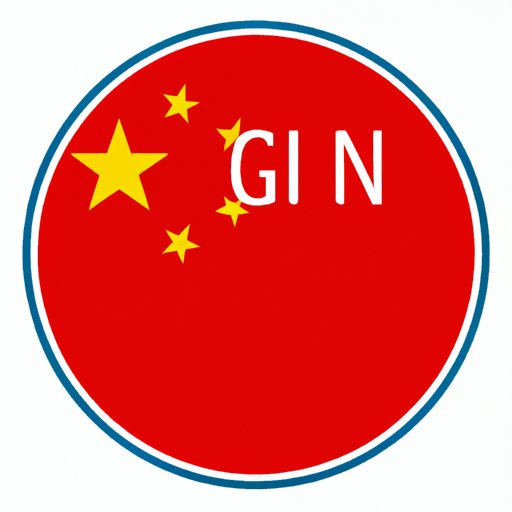Introduction
The Communist Party of China (CCP) is the ruling party of the People’s Republic of China. It is the largest political organization in the world, with more than 91 million members. The CCP plays a central role in shaping China’s political, economic, and social landscape. This article aims to provide a comprehensive overview of the CCP and its global impact.
Understanding the CCP: An Introduction to China’s Ruling Party
The CCP was founded in 1921 and led the Chinese Communist Revolution, which resulted in the establishment of the People’s Republic of China in 1949. Since then, the party has been in power, and its ideology, Marxism-Leninism, has shaped the country’s policies.
The CCP’s main focus is on preserving its dictatorial power, and it has used a combination of economic growth and authoritarian control to maintain its grip on power. China’s economy has experienced unprecedented growth and transformation under the CCP’s rule, which has lifted hundreds of millions of people out of poverty. However, the party’s policies have also led to growing inequalities, environmental degradation, and human rights abuses.
The CCP is organized hierarchically, with the Politburo Standing Committee at the top of the hierarchy. The General Secretary of the CCP, currently Xi Jinping, leads the party and the country. The CCP’s National Congress, held every five years, sets the party’s overall direction and elects its leadership.
The CCP and the World: How China’s Ruling Party Affects International Relations
The CCP’s rise has had a significant impact on the global political and economic landscape. China’s growing economic power and assertive foreign policy have challenged the existing international order and drawn scrutiny from other countries.
China has sought to increase its influence in multilateral organizations such as the United Nations, which it sees as a way of legitimizing its status as a global power. The CCP has also launched the Belt and Road Initiative, a massive infrastructure project that aims to connect China with Europe, Asia, and Africa. Critics see the initiative as a strategy to spread China’s influence and control over other countries.
China’s territorial disputes with neighboring countries, particularly in the South China Sea, have strained its relations with the international community. China has also been criticized for its lack of transparency and cooperation in addressing global issues such as climate change and the COVID-19 pandemic.
Cracking Down on Dissent: The CCP’s Approach to Human Rights in China
The CCP has a long history of political repression and human rights abuses, with limited freedom of speech, assembly, and association for its citizens. The party’s rule is characterized by censorship of the media and the internet, particularly surrounding sensitive topics such as Tibet and Xinjiang.
The CCP’s treatment of ethnic and religious minorities, such as the Uighurs and Tibetans, has also come under heavy scrutiny. Reports of forced labor, mass surveillance, and internment camps for these minorities have prompted international condemnation and calls for action.
CCP vs Democracy: A Comparative Analysis of China’s One-party System
The CCP’s one-party system has often been compared to democratic systems, particularly in the Western world. While there are obvious differences between the two, such as the absence of elections and public participation in decision-making, there are also similarities.
One strength of the CCP’s political system is its ability to make quick, decisive decisions without being bogged down by the slow-moving processes of democratic systems. On the other hand, the absence of checks and balances and a lack of transparency and accountability in the CCP’s system have led to corruption and abuse of power.
In contrast, democratic systems offer representation and accountability, but they can be slow to respond to crises and can be vulnerable to political gridlock. There is no perfect system, and both have their strengths and weaknesses.
From Mao to Xi: A Critical Look at the CCP’s Evolution Across Decades
The CCP has evolved significantly over the decades, from Mao Zedong’s Cultural Revolution to Deng Xiaoping’s economic reforms, and now, under Xi Jinping’s leadership. The party has undergone several political campaigns, including the Great Leap Forward and the Cultural Revolution, that had profound effects on Chinese society.
Deng Xiaoping’s reforms in the 1980s and 1990s transformed China’s economy and helped lift millions out of poverty. Xi Jinping’s leadership since 2012 has signaled a return to a more authoritarian political system, with tightened restrictions on political dissent and a greater emphasis on China’s global influence.
Conclusion
The Communist Party of China plays a central role in shaping China’s political, economic, and social landscape. The party’s rise has had significant global implications, and its policies continue to shape the world in many ways. However, the CCP’s authoritarian rule and human rights abuses have drawn criticism from the international community. Understanding the CCP and its global impact is essential for policymakers and citizens alike, as China’s rise is poised to shape the 21st century in many ways.
